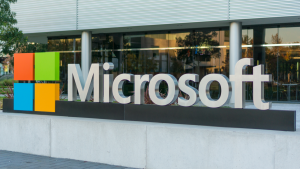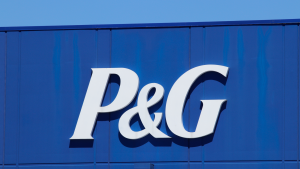With fears rising regarding a hard landing for the economy, investors may want to consider safe stocks to buy. Specifically, during the week ending March 22, Yahoo Finance reported that depositors drained $126 billion from U.S. banks. Unlike prior such transactions, this time around, the outflow originated from the nation’s largest institutions.
Put another way, regular folks are reading between the lines. Additionally, with banking jitters going abroad and surprise production cuts spiking the price of crude oil, the Federal Reserve’s problems overflow the table. There’s only so much that one entity can do, contributing to the pessimism. About the only solution now may be to consider these safe stocks to buy.
| MSFT | Microsoft | $289.39 |
| PG | Procter & Gamble | $150.96 |
| MCD | McDonald’s | $283.78 |
| OLLI | Ollie’s Bargain Outlet | $59.10 |
| INTU | Intuit | $444.72 |
| ALL | Allstate | $116.11 |
| ADM | Archer Daniels Midland | $80.05 |
Microsoft (MSFT)

As a technology giant, Microsoft (NASDAQ:MSFT) might not be everyone’s idea for safe stocks to buy. After all, the mass layoffs that have been occurring since last year mostly impacted the tech sector. Nevertheless, Microsoft is also indispensable in the business world. Basically, if you operate a PC, you must be fluent in Microsoft’s core applications or risk falling behind.
Another factor that makes MSFT one of the safe stocks to buy centers on its financial resilience. For example, on the balance sheet, Microsoft features a debt-to-EBITDA ratio of 0.61, above nearly 63% of software companies. Also, its Altman Z-Score pings at 9.14, indicating high stability and very low risk of bankruptcy.
As well, the enterprise benefits from a solid revenue trek and a net margin of 33%, well above the competition. Finally, covering analysts peg MSFT as a consensus strong buy. On average, their price target comes out to $297.25, implying 2% upside potential.
Procter & Gamble (PG)

A multinational consumer goods corporation, Procter & Gamble (NYSE:PG) specializes in a wide range of personal health/consumer health, personal care and hygiene products. Let’s put it another way. No matter what goes on with the economy, people still need to take care of themselves (physically). Therefore, PG ranks among the safe stocks to buy.
Yes, Procter & Gamble is a boring company – there’s no question about it. But it’s also this nature that makes it enticing during this hour. For example, the company enjoys solid stability in the balance sheet, marked by an Altman Z-Score of 5.35.
Operationally, the company gets the job done with a three-year revenue growth rate of 5.8%. Here, the enterprise beats out 51.12% of its rivals, which is okay. However, its net margin storms out of the gates at 17.79%, beating out almost 92% of sector peers. Lastly, analysts peg PG as a consensus strong buy. Their average price target comes out to $157.85, implying nearly 4% upside potential.
McDonald’s (MCD)

A fast-food icon and a symbol of American capitalism, McDonald’s (NYSE:MCD) really needs no introduction. As a result, you might say that MCD represents an obvious choice for safe stocks to buy. Fundamentally, the company benefits from the trade-down effect. Rather than picking up your morning coffee (and breakfast items) at an expensive café, you can head down to a cheaper McCafe.
Financially, McDonald’s delivers the core elements of a leading example of safe stocks to buy. On the balance sheet, the company enjoys an Altman Z-Score of 4.94, sitting in the safe zone of fiscal stability. Operationally, the Golden Arches prints a three-year revenue growth rate of 3.8%, beating out 72.81% of its peers.
Perhaps most significantly, McDonald’s is hugely profitable. Its net margin stands at 26.65%, above 96.57% of companies in the restaurants industry. Turning to Wall Street, analysts peg MCD as a consensus strong buy. Their average price target comes out to $296.04, implying nearly 5% upside potential.
Ollie’s Bargain Outlet (OLLI)

A favorite idea among safe stocks to buy, Ollie’s Bargain Outlet (NASDAQ:OLLI) enjoys significant relevance as a discount retailer. However, it’s more than just that. With Ollie’s offering unsold or overstocked items with brand-name labels, the business is simply more attractive to consumers. Indeed, since the start of the year, OLLI gained over 24% of equity value. In the trailing year, it’s up nearly 14%.
Financially, Ollie’s continues to entice onlookers. Notably, the company benefits from fiscal stability. Its equity-to-asset ratio is 0.67 times, above 83.17% of its peers. Further, its Altman Z-Score pings at 5.25, reflecting low bankruptcy risk. Operationally, the company’s three-year revenue growth rate is 10.9%, above 75.44% of the field.
As well, its net margin comes out to 5.63%, ranked better than 85% of firms in the defensive retail industry. Looking to the Street, analysts peg OLLI as a consensus moderate buy. Their average price target is $62, implying almost 7% upside potential.
Intuit (INTU)

A business software company, Intuit (NASDAQ:INTU) specializes in financial software. Intuit’s products include the tax preparation application TurboTax, personal finance app Mint, the small business accounting program QuickBooks, the credit monitoring service Credit Karma and email marketing platform Mailchimp. Since the start of the year, INTU gained over 14% of equity value.
Yes, it’s down more than 7% in the trailing one-year period. Still, as the nature of work evolves and people consider jumping to the gig economy, the tax implications associated with gig workers (independent contractors) should bolster INTU. For now, it ranks as one of the safe stocks to buy because of high stability in the balance sheet and strong operational metrics.
In particular, it’s worth pointing out the three-year revenue growth rate of 20.4% and net margin of 14.22%. Both stats rank above their respective industry median values. To close out, analysts peg INTU as a consensus strong buy. Their average price target comes out to $478.94, implying over 7% upside potential.
Allstate (ALL)

As a major player in the insurance business, Allstate (NYSE:ALL) easily ranks among the safe stocks to buy. It’s not that it has sterling financials. Rather, the company benefits from extreme relevance. Under any circumstance, acquiring financial protection represents a common-sense virtue. But in the wildness associated with the post-pandemic ecosystem, financial protection becomes even more pertinent.
To be fair, though, investors don’t quite see the connection between the narrative and the price action. Since the Jan. opener, ALL slipped almost 16%. In the trailing year, it fell nearly 19%. Nevertheless, the company could make a comeback following the Covid-19 malaise.
Notably, Allstate’s three-year revenue growth rate pings at 14.2%, ranked above 79% of its peers. Also, ALL trades at 0.61-times trailing sales. In contrast, the sector median value is 0.93 times.
Finally, analysts peg ALL as a consensus moderate buy. Their average price target stands at $137.17, implying 19% upside potential.
Archer Daniels Midland (ADM)

A multinational food processing and commodities trading company, Archer Daniels Midland (NYSE:ADM) – commonly known as ADM, which is also its ticker symbol – offers an enticing idea for safe stocks to buy. Fundamentally, humans need to eat. Therefore, if we incur a hard economic landing, ADM should be somewhat insulated from the worst of the pain. However, since the start of the year, ADM stock dipped more than 12%.
It’s even worse against the trailing year, with ADM shedding more than 17%. Still, the company benefits from strong operational metrics. In particular, its three-year revenue growth rate pings at 16.4%, above 80.78% of companies in the consumer packaged goods industry. Also, its EBITDA growth rate during the same period is an impressive 30.8%.
Enticingly, the market prices ADM at a forward multiple of 11.67. As a discount to projected earnings, the company ranks better than 73.45% of the competition. Lastly, analysts peg ADM as a consensus moderate buy. Their average price target stands at $102.50, implying over 30% upside potential.
On the date of publication, Josh Enomoto did not have (either directly or indirectly) any positions in the securities mentioned in this article. The opinions expressed in this article are those of the writer, subject to the InvestorPlace.com Publishing Guidelines.
